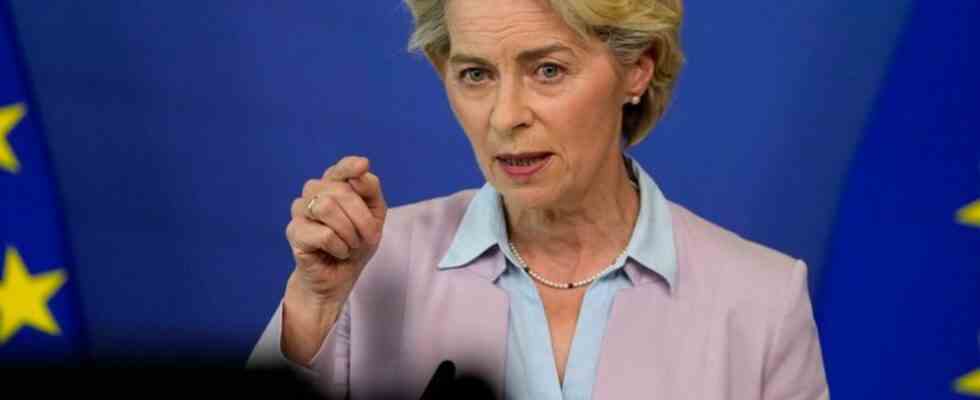State of the EU speech
Von der Leyen outlines ideas on Europe’s crises
EU Commission President Ursula von der Leyen is giving an important speech today. photo
© Virginia Mayo/AP/dpa
War is raging in Europe, high energy prices are affecting the economy and consumers. How is the EU steering through the coming months? The head of the European Commission wants to give answers.
In view of galloping energy prices and the war in Ukraine, EU Commission President Ursula von der Leyen outlines her ideas for the coming months this Wednesday.
In her annual speech on the state of the European Union (9 a.m.), the 63-year-old is likely to make suggestions, among other things, as to how European citizens can get through the winter despite high electricity prices. At the same time, the German politician is likely to assure continued support for Ukraine, which has been attacked by Russia. To reaffirm the solidarity with the country, the Ukrainian First Lady Olena Selenska will be present as a guest of honor in the European Parliament in Strasbourg.
State of the Union speech always in September
The State of the Union address is given by the President of the European Commission every year in September. It is based on the American State of the Union address, which is considered one of the most important speeches by the US President.
A central aspect of the speech is probably the high energy prices, which burden consumers and companies. The Von der Leyens Commission has been preparing emergency measures against the high electricity prices for weeks. A legislative proposal is expected this afternoon, von der Leyen is likely to give the first details. The proposal will probably aim to skim off the high profits of energy companies in particular and relieve consumers with the money.
EU Energy Commissioner Kadri Simson announced on Tuesday that electricity producers who produce electricity from cheaper sources than gas – sun, wind, nuclear power or coal, for example – should pay their proceeds to the state above a certain upper limit. This should then finance relief for consumers. Electricity prices are currently being driven by high gas prices. Nuclear power plants or wind farms make large profits that are now to be skimmed off.
Measures against energy crisis expected
According to Simson, von der Leyen will also present measures to siphon off large profits from oil and gas companies and refineries. This is to be done via a so-called solidarity contribution. Mandatory power-saving measures are also planned to reduce consumption, especially at peak times such as mornings and evenings, said Simson.
Some of these are radical measures that would have been almost unthinkable just a few weeks ago. Now everything has to happen very quickly – and unity among the 27 EU countries must also be maintained. At the end of the month, the EU energy ministers will discuss the Commission’s proposals.
The EU has shown little unity in recent years with regard to questions of the rule of law. The dispute with Poland and Hungary has long been fought on the open stage. Critics of the governments in Warsaw and Budapest accuse the countries of undermining the principles of the rule of law and watering down democratic values. In recent months, Hungary has repeatedly put the EU’s closed stance towards Russia to the test. For example, sanctions against Russia were delayed, Moscow was asked for more gas, and punitive measures were weakened at Hungary’s insistence.

